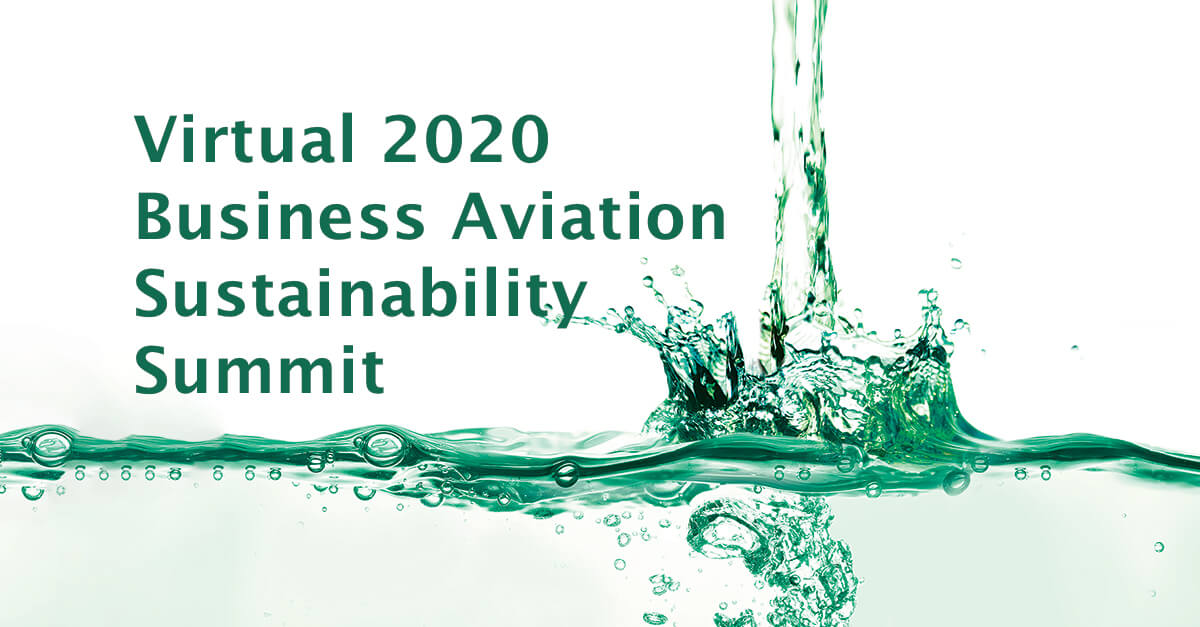
Sept. 15, 2020
The second and final day of the Virtual 2020 Business Aviation Sustainability Summit offered valuable perspectives and insights from regulatory officials and operators across the industry on what is needed to promote broader adoption of sustainable aviation fuel (SAF) across the global aviation community.
Panel moderator Kurt Edwards, director general for the International Business Aviation Council, noted the global business aviation community’s goal to halve its carbon emissions by 2050. “SAF is going to be a critical technology to help us achieve that goal, but to get there we may need as much as 500 million tons of SAF per year across the entire fueling system,” he said.
Although more operators have embraced SAF over the past few years, Steve Csonka, executive director for the Commercial Aviation Alternative Fuels Initiative, noted scaling up to such levels will require incentives for producers and users alike.
Measures under consideration include a $2/per gallon tax credit for SAF usage, and “book-and-claim” initiatives allowing companies to earn carbon offset credits for SAF they purchase for use by other operators located closer to the fuel’s distribution point.
“Without SAF profitability – either directly, or indirectly with the assistance of stable long-term policy – we’ll have to continue developing additional capacity on a unique case-by-case basis,” Csonka said. “That is not the type of business development that is desired or warranted.”
Fortunately, industry stakeholders and regulators share a mutual goal to support SAF use. “Commercial airlines and business aviation sometimes have different views on certain policy issues,” said Nancy Young, vice-president of environmental affairs at Airlines 4 America, “but on environmental issues and sustainable aviation fuels we are the best of friends.
“That goes for working with government as well,” she continued. “We cannot thank FAA enough for its leadership in this area.”
Operators Say: I Want My SAF
Increasing SAF usage also hinges on the positive experiences of early adopters. The day’s second panel featured experiences from flight departments already using SAF in their regular operations.
“Initially, we heard concerns that SAF could ruin our engines, or bust out all the filters of our fuel farm,” noted Sean Lee, general manager for aviation at Coca-Cola Company. “We were able to resolve those questions quickly. SAF really is superior jet fuel.”
Mark McIntyre, director of flight operations for Mente, noted his department researched multiple feedstocks and transportation options to realize the greatest benefit from their use of SAF. “We wanted to ensure we truly were doing a good thing for the planet, and not just doing something that made us feel good,” he added. “We feel confident we’re doing the right thing.”
“We want to use SAF wherever it’s available,” added Craig Hanlon, aviation director for Corteva Agriculture, who said his first introduction to the fuel came during the 2019 NBAA Business Aviation Convention & Exhibition in Las Vegas.
In closing the two-day inaugural summit, NBAA President and CEO Ed Bolen noted the significant progress made toward increasing industry understanding and excitement for SAF.
“This isn’t limited to a very small group of people,” he added. “Manufacturers are fully embracing [SAF]. Fuel producers are excited about it. FBOs and operators are getting involved … and we’re seeing a path forward. And I think we’re seeing SAF being embraced fully throughout the community.”
Business aircraft manufacturers Embraer and Gulfstream sponsored the day’s panels.


 International Business Aviation Council Ltd.
International Business Aviation Council Ltd.